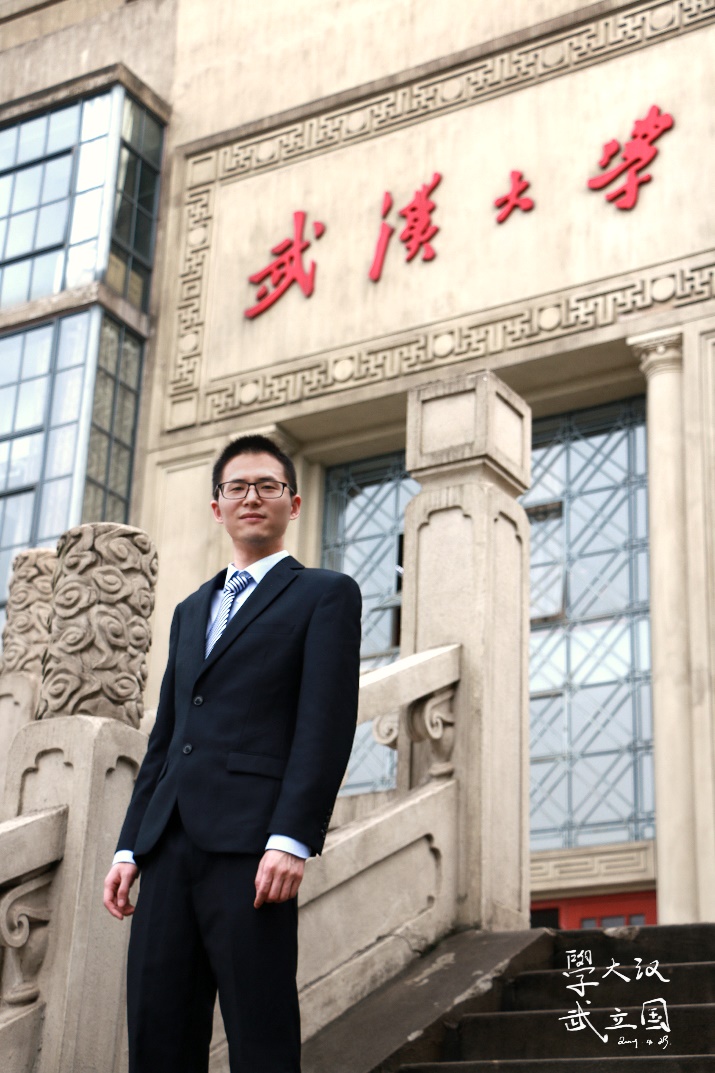

尹家波,湖北鄂州人,1992年4月生,现任武汉大学长聘副教授、牛津大学Honorary Research Associate、水资源与水电工程科学国家重点实验室固定研究人员。2017-2018年赴美国哥伦比亚大学开展博士生联合培养,2019年获武汉大学工学博士学位后留校任教。
主持国家自然科学基金青年项目、国家自然科学基金科技活动项目、“十四五”国家重点研发计划项目子课题、中国博士后创新人才支持计划项目、湖北省自然科学基金、长江电力开放基金等10余项纵向研究课题。主要研究兴趣为全球及区域水循环、碳循环、陆地生态系统碳汇、全球变化水文学、大气动力学、植被遥感、机器学习与重力卫星等,提出了复合气候灾害对陆地生态系统碳汇的定量胁迫诊断技术,发展了极端水文事件对气候变化的热动力学响应理论,丰富了气候变化下水碳循环演变机理及环境风险预测理论。担任China Africa Water Association青年委员会秘书长、长江技术经济学会青年委员会副秘书长、国际水文科学协会中国委员会(CNC-IAHS)统计水文分委会委员,担任Nature和Nature Communications等二十余个国际期刊审稿人。
招收研究生,欢迎咨询,联系邮箱:jboyn@whu.edu.cn
牛津大学个人主页:https://www.geog.ox.ac.uk/staff/jyin.html
谷歌学术个人主页:https://scholar.google.com/citations?user=9Na3qqQAAAAJ&hl=en&oi=ao
科研成果
近五年发表80余篇SCI/EI论文,其中以第一/通讯作者在Nature Sustainability、Nature Communications、Geophysical Research Letters、Water Resources Research、Hydrology and Earth System Sciences、Science China Earth Sciences、Earth’s Future、Journal of Hydrology、Environmental Research Letters、《科学通报》、《中国科学:地球科学》、《水利学报》等国内外权威期刊发表30余篇高水平成果(含3篇ESI高被引、6篇《中国科学》),授权31项发明专利、34项实用新型专利、6项软件著作权。相关成果获得2021 WRR Editors’ Choice Awards(排名1)、全国水利类优秀博士学位论文、中国水利青年科技论文(英文)竞赛第一名、美国Committee of 100百人会英才奖、全国零碳科技十佳萃选学术论著(排名1)、湖北省科技进步一等奖(排名10)、长江科学技术奖二等奖(排名4)、大禹水利科学技术奖三等奖(排名8)、武汉大学十大学术之星、武汉大学十大杰出青年等奖励,相关研究成果被英国牛津大学、美国哥伦比亚大学、联合国减灾办公室(UN Office for Disaster Risk Reduction)、Science News、Eurek Alert!和Terra Daily等国际学术媒体高亮报道。
教育工作经历
2022.10-至今 牛津大学 Honorary Research Associate
2019. 07-至今 武汉大学 副研究员、副教授
2017.9-2018.10 哥伦比亚大学 联合培养博士生(国家公派)
2016.9-2019.6 武汉大学 博士研究生(水文学及水资源)
2014.9-2016.6 武汉大学 硕士研究生(水利工程)
2010.9-2014.6 武汉大学 本科(水利水电工程全英文教学试验班)
2007.9-2010.6 华中师大一附中 高中
国际媒体报道
牛津大学报道全球水碳循环研究进展:
哥伦比亚大学报道全球洪水研究进展:
https://www.engineering.columbia.edu/news/gentine-storm-runoff-flash-floods
联合国减灾办公室报道全球水碳循环研究进展:
ScienceDaily报道全球极端气候研究进展:
https://www.sciencedaily.com/releases/2018/10/181022085820.htm
美国地球物理联合会(AGU)报道气候变化研究进展:
https://mp.weixin.qq.com/s/Bw_G0kwW_ubmCK8M5FPcHg
https://mp.weixin.qq.com/s/IYunt0v3muNETvOOjoklPg
近五年10篇代表性学术论文
[1] Yin J*, Gentine P, Slater L, et al. (2023). Future socio-ecosystem productivity threatened by compound drought-heatwave events[J].Nature Sustainability.https://doi.org/10.1038/s41893-022-01024-1
[2] Yin J*& Slater L. (2023). Increase in drought-heatwave events worsens socioeconomic productivity and carbon uptake [J].Nature Sustainability. (News & Views)https://doi.org/10.1038/s41893-022-01026-z
[3] Yin J, Gentine P, Zhou S, et al. (2018). Large increase in global storm runoff extremes driven by climate and anthropogenic changes.Nature Communications9: 4389.
[4] Yin J, Gentine P, Guo S, et al. (2019). Reply to increases in temperature do not translate to increased flooding.Nature Communications10: 5675. (Matters Arising)
[5] Chai Y, Yue Y, Slater L,Yin J, Borthwick A, Chen T, Wang G. (2022). Constrained CMIP6 projections indicate less warming and a slower increase in water availability across Asia.Nature Communications13: 4124.
[6] Yin J*, Slater L, Gu L, Liao Z, Guo S, Gentine P. (2022). Global increases in lethal compound heat stress-hydrological drought hazards under climate change.Geophysical Research Letters49(18): e2022GL100880.
[7] Yin J, Guo S, Yang Y, et al. (2022). Projection of droughts and their socioeconomic exposures based on terrestrial water storage anomaly over China.Science China Earth Sciences65(9): 1772-1787.
[8] Yin J, Guo S, Wang J, et al. (2023). Thermodynamic driving mechanisms for the formation of global precipitation extremes and ecohydrological effects.Science China Earth Sciences66: 92-110.
[9] Gu L,Yin J*, Slater L, et al. (2023). Intensification of global hydrological droughts under anthropogenic climate warming.Water Resources Research59(1): e2022WR032997.
[10] Yin J, Guo S, Gentine P, et al. (2021). Does the hook structure constrain future flood intensification under anthropogenic climate warming?.Water Resources Research57: e2020WR028491.